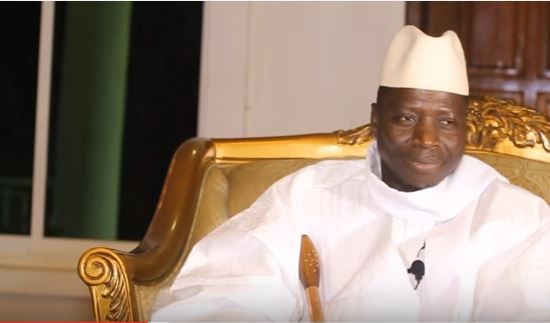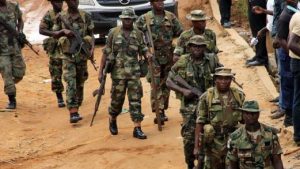
BBC: West African leaders are in The Gambia to try to persuade Yahya Jammeh to cede power to his elected successor.
Mr Jammeh was given until noon to leave office or be forced out by UN-backed regional forces, but the deadline was extended to allow last-ditch talks.
Troops have been told to halt their advance until the talks are over.
The Economic Community of West African States (Ecowas) is acting in support of new President Adama Barrow, who was sworn in on Thursday.
His legitimacy as president has been recognised internationally, after he was voted in last month.
Guinea’s President Alpha Conde and Mauritanian President Mohamed Ould Abdel Aziz have arrived in Banjul for the talks with Mr Jammeh.
The chairman of the Ecowas commission, Marcel Alain de Souza, said that if the meeting with Mr Conde proved unsuccessful, military action would follow.
The end is near: By Thomas Fessy, BBC News, Banjul:
Banjul remains quiet this morning, everything still closed. There is a feeling that the end of the political crisis is close but everybody is anxiously waiting to hear what Yahya Jammeh will tell the Guinean and Mauritanian leaders.
The head of the Ecowas commission, Marcel de Souza, suggested Mr Jammeh could be flown to Guinea before deciding on his fate. Interestingly, Mauritania is not a member state of Ecowas and the Guinean president, Alpha Conde, has repeatedly voiced his opposition to any regional military action, arguing that diplomacy should prevail instead.
Ecowas said that its forces had encountered no resistance after entering The Gambia on Thursday.
Troops from Senegal and other West African countries crossed into The Gambia after an initial deadline for Mr Jammeh to stand down passed without his resignation.
Mr Barrow, who remains in Senegal, has said that he will not return to Gambia’s capital, Banjul, until the military operation has ended.
The threat by the West African regional bloc Ecowas to remove Mr Jammeh by force is supported by the 15-member UN Security Council, although the council has stressed that a political solution should be the priority.
A Senegalese army spokesman, Col Abdou Ndiaye, told the BBC that troops who were now in The Gambia were prepared to fight if necessary.
“It is already war, if we find any resistance, we will fight it,” he said, adding: “If there are people who are fighting for the former president, we will fight them.”
But Col Ndiaye said the main goal of Ecowas was to restore democracy and to allow the newly-elected president to take power.
In his inaugural speech at the Gambian embassy in Senegal’s capital, Dakar, President Barrow ordered all members of The Gambia’s armed forces to remain in their barracks.
Any found illegally bearing arms would be considered “rebels”, he said.
Amid the crisis, the UN refugee agency reported that more than 45,000 people had fled The Gambia for Senegal so far this year.
More people could leave if the situation was not resolved, the UNHCR said.
Why is Mr Jammeh refusing to go?
After first accepting defeat in the election he reversed his position and said he would not step down. He declared a 90-day state of emergency, blaming irregularities in the electoral process.
The electoral commission accepted that some of its early results had contained errors but said they would not have affected Mr Barrow’s win.
Mr Jammeh has said he will stay in office until new elections are held.
Remaining in power would also give him protection against prosecution for alleged abuses committed during his rule.


